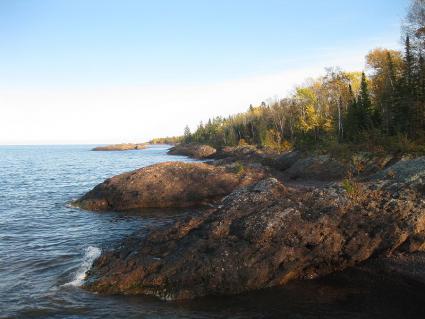Climate change and its impact on Lake Superior fishing
Many of Minnesota and Ontario’s lakes, including Lake Superior, are getting warmer. Researchers at the University of Minnesota Duluth and the Minnesota Department of Natural Resources have found that surface-water temperatures in Lake Superior have consistently increased for decades.
Lake Superior is known for its cold, deep water. However, in recent decades, warming temperatures are leading to increases in algae blooms in the Big Lake. These types of changes to the ecosystem can be hazardous for the lake’s prized fisheries.
When it comes to addressing climate change and North Shore fisheries, including on Lake Superior, many fisheries biologists and others addressing this topic focus on planning for change, rather than the solutions to climate change. In other words, the notion of “is climate change happening” is no longer part of the equation for these biologists.
For this series, WTIP interviewed many of the top fisheries biologists in the North Shore region, including the DNR’s area fisheries managers in Grand Marais, Finland and for Lake Superior. Rather than discussing if climate change is a reality, all of them talked specifically about the realities of the situation and what the agency is doing to cope with a changing climate.
In part one of this series, WTIP’s Joe Friedrichs speaks with Tom Beery from Minnesota Sea Grant, Jay Austin from UMD, Cory Goldsworthy from the Minnesota Department of Natural Resources and Gord Ellis, a longtime angler on Lake Superior who lives near Thunder Bay, Ontario.
Tweet







